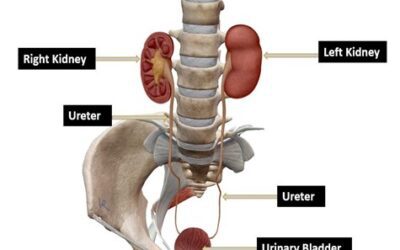Red wire.
Blue wire.
No, cut the red wire. Wait, or is it the blue? Does this green wire do anything?
Which is it?
We are all too familiar with the infamous defuse the bomb scenes from some of the most distinguished action flicks made. The tension mounts as a dynamic duo try to convince one another of their certainty as to which color cord will deactivate the explosive device, threatening to end millions of lives. On display, a countdown serves as a reminder of the enormous weight resting on the shoulders of the ones expected to save the day. If that wasn’t enough, the suspense grows as the sound of a tick and tock intensifies the pressure of getting the decision just right.
Two factors influence and determine the outcome of the scene. Selecting the correct wire and severing it before time is no more. Both are a must if lives are to be spared. Luckily for us moviegoers, the hero usually gets this right, securing the happily ever after of the film. These climatic moments have a lesson embedded within. They teach us that having the most accurate and timely information combined with the right tool in the right hands makes all the difference.
Off-screen, this enlightenment also holds true. The emergency department (ED) heroes know all too well what it means to face situations where time is of the essence. Multiple cases presented in the ED are time critical, meaning that without a prompt diagnosis, the end result could be fatal. These conditions include stroke, heart attack, internal bleeding, unconscious patient, and infinitely more. When faced with these conditions, timing is everything. Treating physicians require in-depth insight into a patient’s prognosis to administer rapid intervention as soon as possible.
For example, the principal ideal related to stroke cases is “time saved is a brain saved.” During a stroke, blood flow is suspended in a particular area of the brain. This interruption of flow causes brain cells to die due to a lack of oxygen. The American Heart Association states that for every minute a stroke is untreated, the average patient loses 1.9 million brain cells. Each hour left untreated, the brain loses the number of brain cells comparable to the amount lost in 3.6 years of natural aging. The sooner a remedy is applied, the better.
Internal bleeding is another condition requiring swift decision-making to ensure accuracy in the prescribed treatment and care plan. In other words, timing and intervention are determinants of the outcome. Uncontrolled hemorrhage is considered worldwide a leading cause of trauma-associated mortality. Organ failure, seizures, coma, external bleeding, and eventually death are likely outcomes of an untreated hemorrhage. Severe internal bleeding is often fatal, even with appropriate treatment. The best line of defense is early detection and remedy. The more promptly the condition is treated, the risk of complications decreases, and the expectation of full recovery increases.
Similar to our bomb defusers, ED providers must be well informed to make life-saving decisions with time against them. This process must even consider those in the ED presenting less threatening conditions. Whom to triage and who not to triage directly impact the level of care provided to each patient. Which we should note can’t be distributed equally in the emergency room. The more severe, the more attention is required. The ED team must strategize to ensure resources are not tied up unnecessarily. Here is where point-of-care ultrasound (POCUS) enters in.
POCUS has become well known for its diagnostic speed. It is one of its many advantages appreciated and enjoyed by medical professionals skilled in its execution. The pocket-sized device is particularly beneficial when a clinical examination is unclear as to the underlying cause of symptoms a patient is experiencing. A POCUS assessment is performed at the bedside, allowing a deeper understanding of a patient’s condition to be obtained right where they lay. This convenient access point eliminates transporting patients to various departments. The transport in itself lengthens diagnostic time as patients are moved from one unit to the next. Additionally, waiting on specialty examinations only adds time to the care equation.
POCUS can also empower healthcare professionals to shave off diagnosis time in an emergency pre-hospital. Even before arriving at the ED, an assessment can be made about a patient’s condition, ensuring that the patient is handed off to the most suitable specialty team. Imagine ambulance services equipped with POCUS, introducing ultrasound into the prehospital setting. Once the crew is armed with an accurate patient status, they can:
- Make rapid decisions about which hospital will treat the patient best
- Provide ED personnel with exact condition information, avoiding any delays
- Position the patient well in advance for a desirable outcome
Time can manifest as one of the worst emergency room enemies. It threatens and weighs the balance of life and death. Healthcare professionals in the ED are on the frontlines and have to decide rapidly whether or not a patient is suffering from a fatal ailment requiring specialized treatment, and POCUS can provide critical guidance in answering that question precisely.
Like our action heroes faced with a ticking time bomb, medical providers in the ED also require an immaculate offense. In moments when time seeks to be a barrier to exceptional life-preserving care, being equipped with information directly affects the course of action. It’s time to ensure POCUS is integrated and available to defend against critical cases. Learn more about how you can incorporate this time-eliminating modality into your toolbox.
























